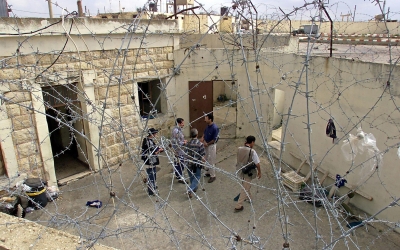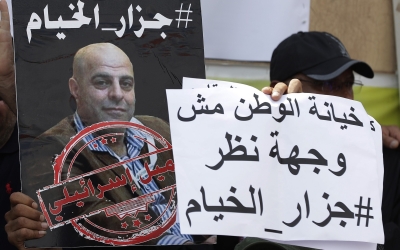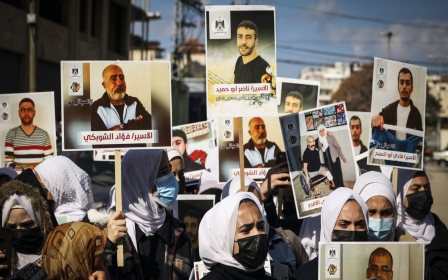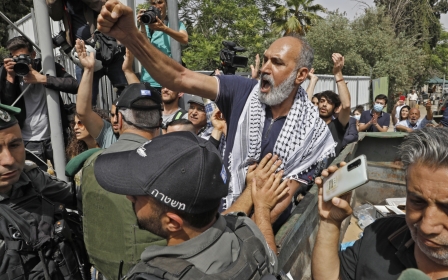Lebanon: Extent of torture in Israeli-backed prison revealed in declassified documents
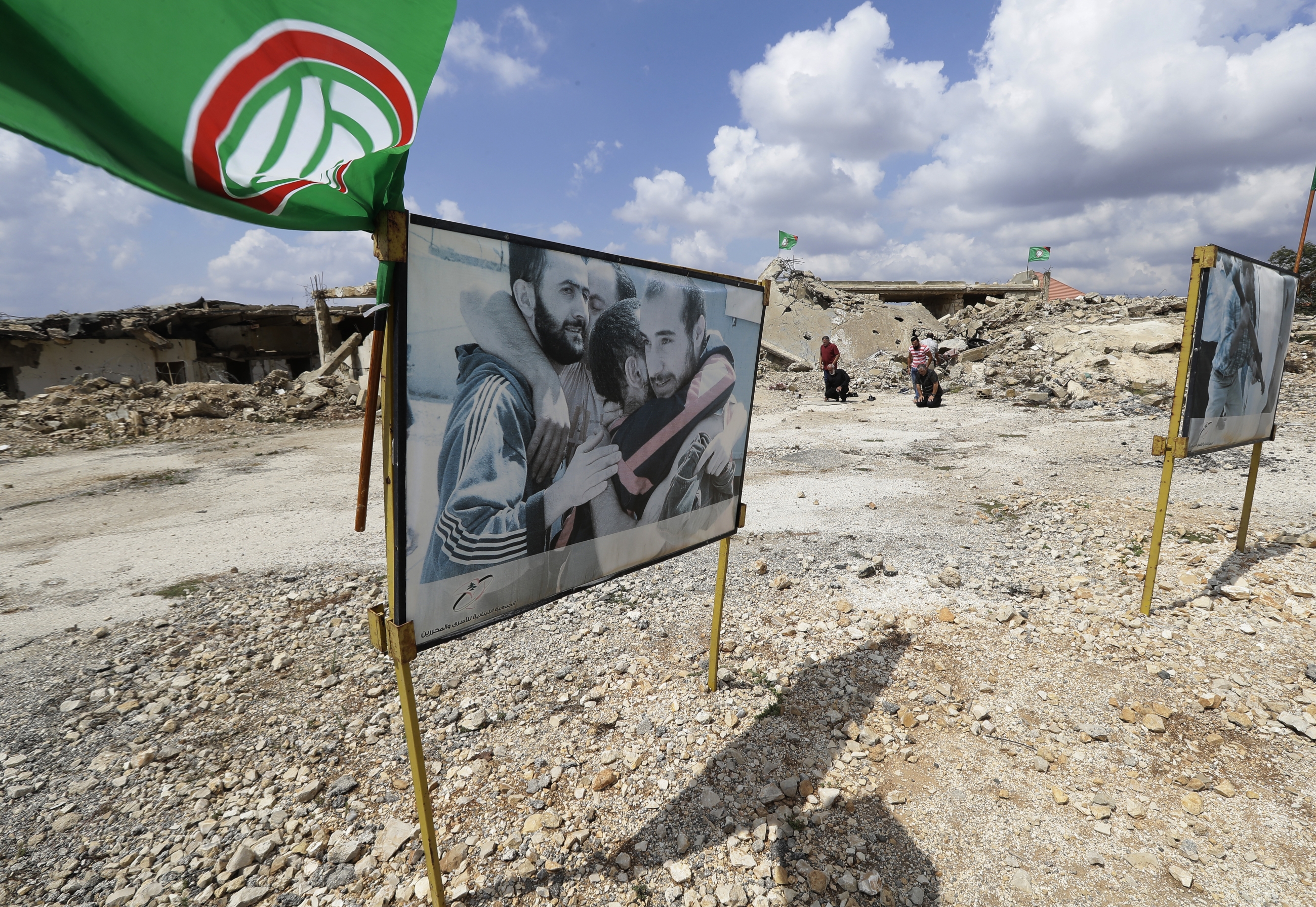
Newly declassified documents released by Israel's security agency Shin Bet show the extent of the torture that prisoners endured during their time in the notorious Khiam detention centre in southern Lebanon.
Shin Bet allowed the publication of the documents ahead of the first legal proceedings, which are scheduled to take place in early April.
'The documents ... are just a tiny glimpse into the hell that was going on there. We will continue to fight until all the documents are opened ... and those responsible for the atrocities are brought to justice'
- Eitay Mack, lawyer
A number of human rights activists had submitted a petition to the High Court of Justice via Israeli human rights lawyer Eitay Mack to order Shin Bet to declassify the documents. The materials, the activists say, record “torture and cruel and inhumane punishments” in the prison.
However, a substantial portion of the documents remained censored, meaning that large sections could not be read.
New MEE newsletter: Jerusalem Dispatch
Sign up to get the latest insights and analysis on Israel-Palestine, alongside Turkey Unpacked and other MEE newsletters
One of the censored reports from 1987, called the "Khiam facility - a situation assessment," showed Shin Bet claiming that the prison “played a significant part in prevention activity”.
It also claimed that Khiam had been run by interrogators from the South Lebanon Army (SLA), an Israeli-backed breakaway group of soldiers formed during the Lebanese civil war, which ran from 1975 to 1990. These "SLA personnel [were] trained by the Israel Defence Forces (IDF) and the Shin Bet," the report said.
Khiam was converted from an army camp into a prison in 1985 in southern Lebanon, a few kilometres from the Israeli border. It remained in use as a prison and a place where torture was carried out until Israel’s withdrawal from Lebanon in May 2000, and the subsequent collapse of the SLA.
Israeli air strikes destroyed what remained of the Khiam camp during the war between Hezbollah and Israel in July 2006, allegedly to hide the evidence of torture and mistreatment carried out there.
Mack, the human rights lawyer who worked to get the Khiam prison documents declassified, told Middle East Eye: “The IDF and the GSS [Shin Bet], together with the SLA, managed in Khiam a detention and torture facility like those in the military dictatorships in Latin America.”
He added: “The documents that the GSS revealed are just a tiny glimpse into the hell that was going on there. We will continue to fight until all the documents are opened to the public and those responsible for the atrocities are brought to justice.”
Ample evidence
According to the documents, between 250 and 300 detainees were held in the prison at any given time. They belonged to various organisations and political parties, including Amal, Hezbollah, the Communist Party, Fatah and the Popular Front for the Liberation of Palestine.
Israel has always claimed that it had nothing to do with the infamous prison and that the facility was administered and under the authority of the SLA.
However, it also admitted to having held meetings with the prison's interrogators to cooperate and assist SLA personnel with training.
Human Rights Watch and other rights groups say there is ample evidence that indicates direct Israeli involvement in the prison, including frequent visits and being involved in interrogations.
Former prisoners say they were hit with electronic rods, hung by their wrists, and put in small cells that resembled "dog kennels" as punishment.
In the recently declassified 1987 document, under a heading titled Miscellaneous, it is stated: “No confessions are taken from those interrogated at this facility, they are not prosecuted, there is no detention order against them and the period of their detention depends on the severity of their deeds, without any determination of the length of their prison stay.”
If prisoners were detained without charge and for an indefinite period, then this would put the facility in contravention of international law.
Another document, handwritten and without any information about the author or their position, described a detainee who had been interrogated and tortured on suspicion of being “connected to Hezbollah” and who “received electricity in her fingers".
Shin Bet is well known for the brutal methods it uses against detainees, particularly against Palestinian prisoners.
The UN Committee Against Torture has condemned the methods it uses during interrogations.
In 2019, Amnesty International condemned Shin Bet for the "legally sanctioned torture" of Samir Arbeed, a Palestinian man admitted to hospital with broken ribs and kidney failure following his arrest and interrogation by Israeli forces.
Middle East Eye delivers independent and unrivalled coverage and analysis of the Middle East, North Africa and beyond. To learn more about republishing this content and the associated fees, please fill out this form. More about MEE can be found here.


